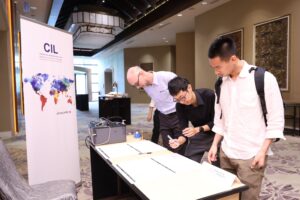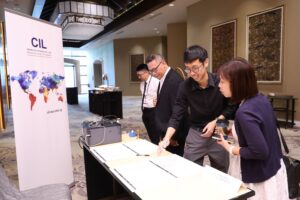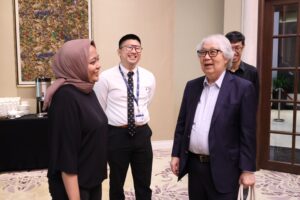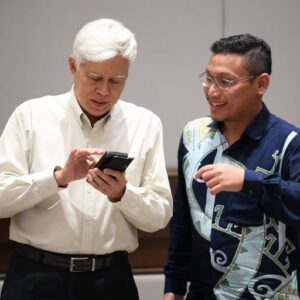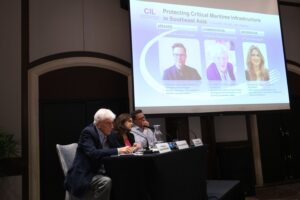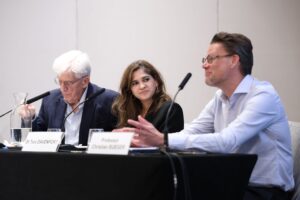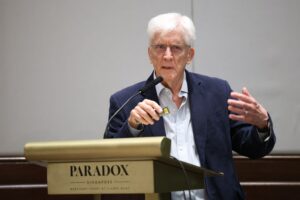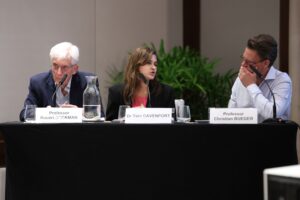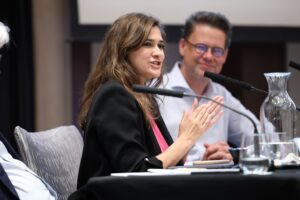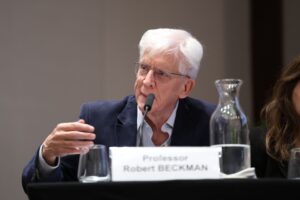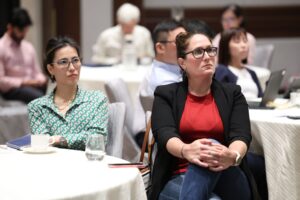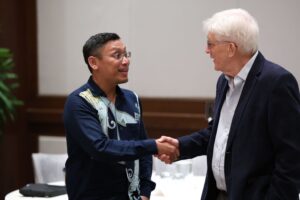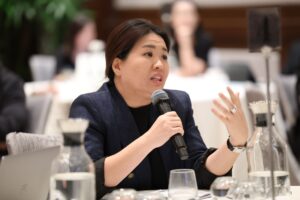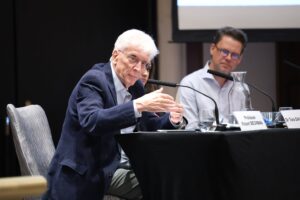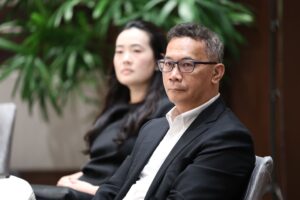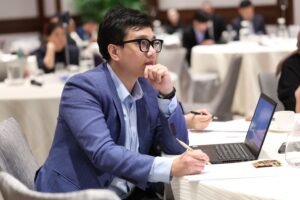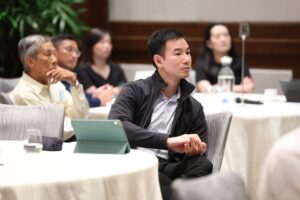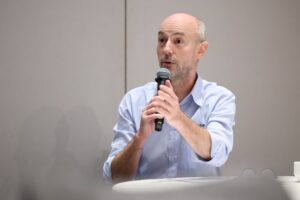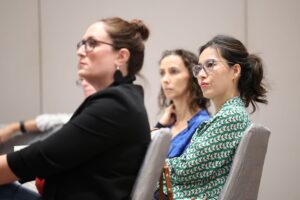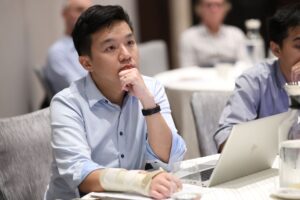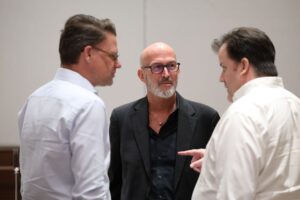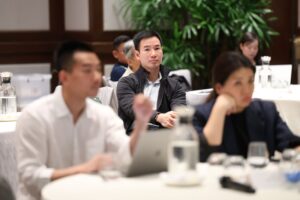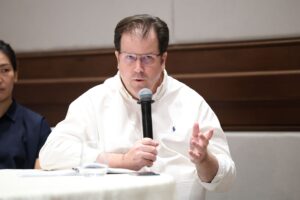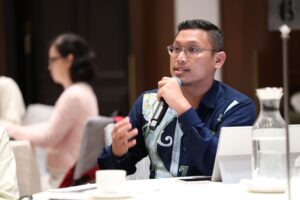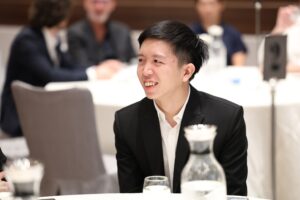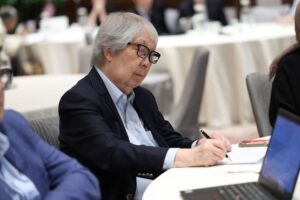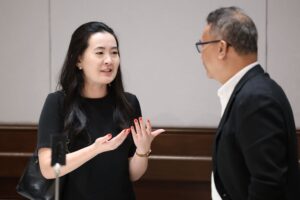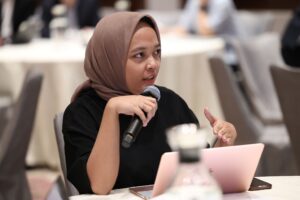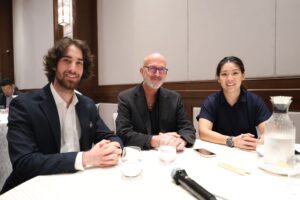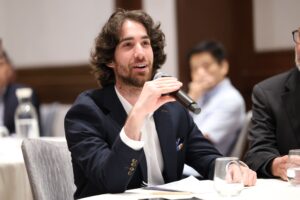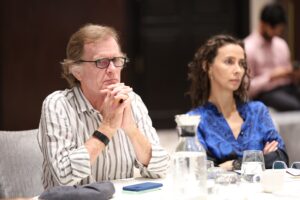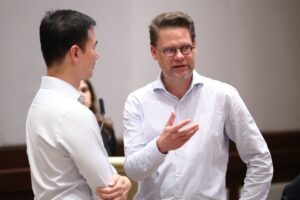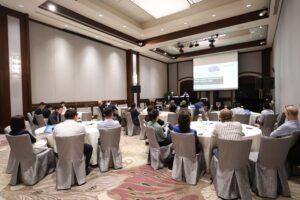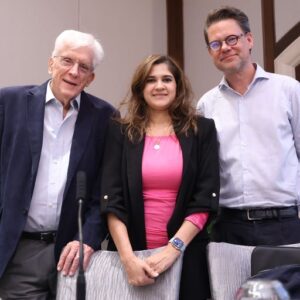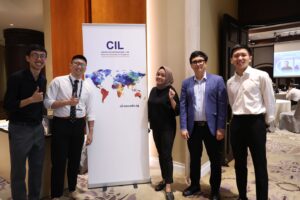Venue
Start
End
Time
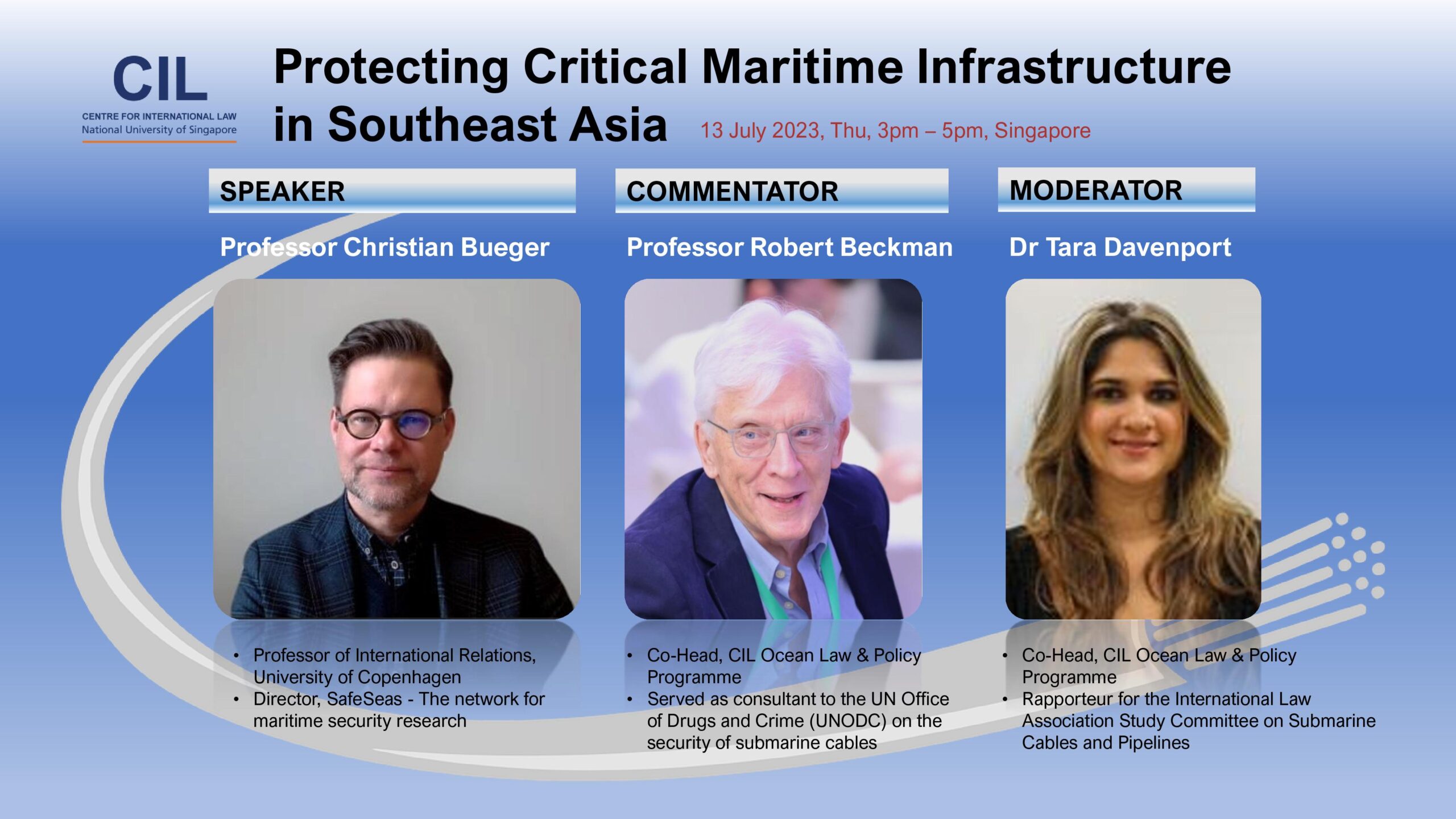
On 13 July 2023, the Ocean Law and Policy team of the Centre for International Law (OLP-CIL) organized a seminar on Protecting Critical Maritime Infrastructure in Southeast Asia. The Conference was an in-person, invitation-only event, held at Paradox Singapore Merchant Court Hotel.
The main presentation was made by Professor Christian Bueger from the University of Copenhagen, followed by comments from Emeritus Professor Robert Beckman, Co-head of the OLP-CIL. Dr. Tara Davenport was the moderator of the panel. The floor was then opened for comments and questions from other participants.
The discussion at the Seminar focused on four main issues: (i) the definition of critical maritime infrastructure (CMI) and taxonomy of maritime infrastructure (MI) in the scholarship; (ii) the spectrum of potential threats to such MIs (for e.g., accidental to hybrid threats) and the present and planned responses to address them; (iii) the legal, geo-political, policy, and operational challenges in protecting CMI; and (iv) recommendations for addressing these challenges in the region.
Incidents such as the Nord Stream pipeline blowup in the Baltic Sea and the cutting of Taiwanese cables in the South China Sea were considered as “wake-up” calls and have renewed political interest in enhancing the security of CMIs. The participants agreed that CMIs (such as subsea power and telecommunications cables) play an increasingly important role in the region, particularly for offshore renewable energy generated by wind farms and access to the Internet. However, some legal loopholes remain, and there is a lack of adequate measures to protect these CMIs (such as its physical security) from accidents or deliberate attacks. Some participants also noted that, amongst others, the cross-sector and transboundary nature of the threats posed today require greater integration and coordination amongst stakeholders rather than working in silos. Consequently, inter-agency cooperation and private-public partnerships were suggested as a way forward to address these issues. International collaboration through ASEAN and ICPC were also welcomed by participants to play a key role in the protection of CMIs in the region.
The Seminar was attended by representatives from the private industry, academics, officers from Singapore Government agencies, and representatives from the diplomatic community. The organizers were especially pleased that representatives from the private industry had actively participated and contributed meaningfully to the discussions.
PRE-EVENT INFORMATION
ABOUT THE SEMINAR
The dependency of Southeast Asian nations on maritime infrastructure is constantly increasing. Subsea data cables provide the backbone of global communications and the digital economy. The expansion of offshore windfarms that are connected by underwater power cables to the national electricity grids is one of the main solutions to decarbonize economies and meet climate change targets. While such maritime infrastructures are expanding with rapid speed, the security challenges that the new dependencies raise have received less attention.
In this event we will explore the legal, political and operational challenges of protecting critical maritime infrastructure. We discuss the key threats to regional infrastructure and how these can be met through resilience measures, law enforcement, regulation and surveillance at the national and regional levels. Protecting critical maritime infrastructure requires solid understanding of the law of the sea and of the functioning of infrastructures as well as enhanced maritime awareness. It also requires inter-agency coordination at the national level, enhanced regional cooperation and enhanced cooperation between governments and industry through the establishment of private sector-public sector partnerships.
SPEAKER
Professor Christian Bueger | Prof Christian Bueger is professor of international relations at the University of Copenhagen, honorary professor at the University of Seychelles, and one of the directors of the SafeSeas network for maritime security. He has explored issues of maritime security, ocean governance and critical maritime infrastructure protection in over 170 publications and currently leads a research group on ocean infrastructures funded by the Velux Foundation. He is the author of two leading studies on subsea cable protection published by the European Parliament and Contemporary Security Policy. His book Understanding Maritime Security is forthcoming with Oxford University Press (with Tim Edmunds). Further information is available on his personal website at https://bueger.info/
COMMENTATOR
Professor Robert Beckman | Prof Robert Beckman was the founding director of Centre for International Law (CIL), a university-level research centre located on the Bukit Timah Campus of the National University of Singapore (NUS). He is currently the co-head of CIL’s Ocean Law and Policy Programme. Prof Beckman is an Emeritus Professor at the NUS Faculty of Law, where he has taught various courses in international law since 1977, including Ocean Law and Policy and the International Regulation of Shipping. Prof Beckman is a member of the Governing Board of the Rhodes Academy of International Law, where is has lectured since 2009. He is Senior Advisor to the Maritime Security Programme of the Defence and Strategic Studies (IDSS) at the S. Rajaratnam School of International Studies (RSIS) at Nanyang Technological University (NTU). Prof Beckman has served as a consultant to the UN Office of Drugs and Crime (UNODC) on the security of submarine cables.
MODERATOR
Dr Tara Davenport | Dr Tara Davenport is an Assistant Professor at the Faculty of Law, National University of Singapore (NUS) and the Co-Head of the Ocean Law and Policy programme of the Centre for International Law (CIL). She has an LLB from the London School of Economics, an LLM in Maritime Law from NUS, an LLM and JSD from Yale Law School. She received a Fulbright Scholarship in 2013 and the NUS Overseas Graduate Scholarship in 2014. She is a qualified Advocate and Solicitor in Singapore. Her current research interests are public international law, law of the sea and international dispute settlement. She has written on the South China Sea disputes, submarine cables, deep seabed mining and maritime security issues. She was a member of the Legal Working Group on Liability for Environmental Harm from Activities in the Area convened by the Centre for International Governance Innovation (CIGI), the Commonwealth Secretariat and the Secretariat of the International Seabed Authority. She is also the Rapporteur for the International Law Association Study Committee on Submarine Cables and Pipelines.
CIL AND SUBMARINE CABLES
Shortly after its founding in 2010 CIL organized events and undertook a study on submarine cables. CIL collaborated with the International Cable Protection Committee (ICPC) to produce Submarine Cables: The Handbook of Law and Policy (Martinus Nijhoff, 2014). The co-editors of the handbook were Prof Beckman and Tara Davenport of CIL and Douglas Burnett, the legal advisor of the ICPC. Prof Beckman is the author of the chapter in the Handbook entitled “Protecting Submarine Cables from International Damage –The Security Gap”. Tara Davenport was the co-author of five of the chapters.
This is a by-invitation-only event


